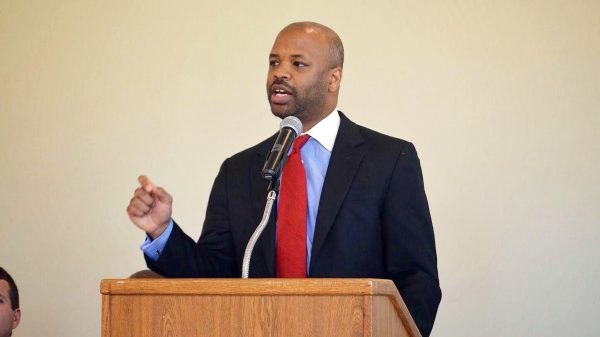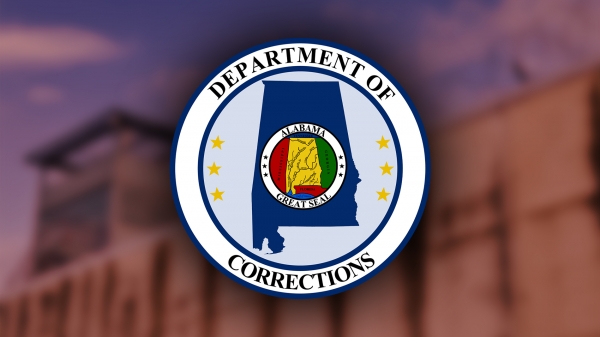By Bill Britt
Alabama Political Reporter
The funding method proposed to build four new super-max-style prisons, under the Alabama Prison Transformation Initiative Act (APTI), will stop the public from voicing its opinion while keeping the almost one billion dollars borrowed off the books and in the hands of a very small group.
Under Section 14-2-6 the Alabama Corrections Institution Finance Authority governs the financial aspects of the State’s prison system. The Code of Alabama allows the Authority to create a public Corporation that has the power to issue bonds to build prisons and then lease the Prisons it owns to the Authority. The public corporation consists of the Governor, the Commissioner of Corrections, the Director of Finance, the Lieutenant Governor, and the Attorney General as determined by Code of Alabama Section 14-2-2 through Section 14-2-6
Under Section 14-2-6 the Board Members of the Authority consist of three members: Bentley who serves as the president of the authority, the Commissioner of Corrections Jeff Dunn as vice-president and the Clinton Carter Director of Finance as secretary.
The plan as proposed in APTI calls for Governor Robert Bentley and two of his appointed cabinet members to have sole authority—by statute—to not only borrow $800 million for his ambitious prison plans but to keep it from public review while giving the Governor carte blanche with no real oversight. Although the bill does add two new members to the Authority: one House member and one Senator, a majority of the members of the proposed board of directors by law constitute a quorum for the transaction of business and the majority of the board consists of the Governor and his appointees. Additionally, this bill does not address the members of the Authority in Sections 14-2-2 and 14-2-3 and 14-2-4.
Under Section 14.2.2, the power is granted to the three original Authority members to acquire land, construct and lease correctional institutions, buildings, and facilities. It also gives them complete authority to sell or lease the Kilby Correctional Facility.
Kilby is located on 154 acres of land in Montgomery at 12201 Wares Ferry Road. It serves as the intake center for all male inmates entering State prisons. It houses approximately 1400 prisoners. Kilby is centrally situated between the Poarch Creek Indian Casino in Wetumpka and VictoryLand in Shorter.
No construction budgets have been set forward to support the $800 million budget. Whether this expensive project is bonded and constructed at one time or broken down into separate phases it is difficult to understand how any lending agent or bonding authority could secure this amount of money without a comprehensive understanding of the financials for the project.
The Bentley Administration’s plan to finance $800 million dollars for new prisons using what is known as a “lease revenue bond” which will actually be issued by the public corporation under the control of the Governor and his two cabinet appointees. Purchases under this Authority do not go through the Contract Review Committee and current legislation eliminates the need for legislative approval.
According to Investopedia, “A revenue bond is a municipal bond supported by the revenue from a specific project, such as a toll bridge, highway or local stadium. Revenue bonds are municipal bonds that finance income-producing projects and are secured by a specified revenue source. Typically, revenue bonds can be issued by any government agency or fund that is managed in the manner of a business, such as entities having both operating revenues and expenses.”
However, prisons do not self-generate revenue. They rely on the State’s General Fund Budget for funding.
Typically a general obligation bond is used to finance government construction projects such as prisons, and customarily require approval from the voting public.
According to Investopedia, “A general obligation bond (GO) is a municipal bond backed by the credit and taxing power of the issuing jurisdiction rather than the revenue from a given project. General obligation bonds are issued with the belief that a municipality will be able to repay its debt obligation through taxation or revenue from projects. No assets are used as collateral.”
These types of bonds usually require voter approval because payments are taken from their State’s General Fund, which may have State Constitutional constraint.
Why use a revenue generating bond as opposed to the general obligation bond?
According to Forbes, “When voters began rejecting general obligation bonds for prison construction, state treasurers, along with law firms and investment bankers, worked a way around the constitutional and statutory restrictions on such debt. They began using lease revenue bonds to construct correctional facilities.”
The analysis also cites how the scheme was implemented: “The state creates an entity or agency to build the prison. The agency floats bonds to the public to cover construction of the facility. The agency then leases the right to use the completed prison to the state. The state pays the entity lease payments. The entity uses the lease payments to service the bond debt. Essentially, the state takes money from one pocket (the general fund appropriations to the prison system) and puts it into another pocket (the agency created for the facility), and then the agency distributes the money to the bondholders.”
The Bentley Administration claims the lease payments made from the General Fund Budget meets the requirements for a lease revenue bond.
Alabama Corrections Institution Finance Authority will purchase the prisons and lease them back to the State, keeping to $800 million in Bonds off the State’s books. Only the lease payment to the Authority will appear in the General Fund Budget.
California, New York, and Florida have pioneered this types of prison funding over the last several years. According to Florida’s TaxWatch, lease revenue bonds provided state government with, “easy access to investment capital allowed the commitment of thousands of new prison beds that will cost billions of dollars to operate over the coming decades while blurring the balanced budget requirement intended to keep Florida fiscally stable.”
Florida TaxWatch also found, “…it [Lease revenue bonds] obscures the true cost of prison system growth since full construction costs are not included in the yearly budgets, but are found only in a little-known government reports.”
A PDF booklet being distributed by the Bentley administration says, “Alabama Prison Transformation Initiative (APTI) provides a fiscally sound solution to addressing Alabama’s long-neglected prison infrastructure; while providing the environment conducive to delivering the necessary programs to reduce recidivism.”
Should this legislation pass as introduced, the power given to the Alabama Corrections Institution Finance Authority to let an $800 million bond and construct prisons using alternative delivery methods (no bid on bonds, no bid on prisons) will be Codified and set a precedent going forward.
Under SB59, as it has been proposed, voters will have no say in borrowing $800 million for prisons. The Department of Corrections will have complete control over the location of any new prisons, the decision to renovate any existing prisons, and the disposal of current facilities. The Governor, with the majority vote on the Authority Board, will have complete control over the borrowing, spending and construction for prisons.
Ultimately, all of these transactions will be kept off the books except for a simple lease agreement between two State organized entities where money is taken out of one pocket and placed in the other.























































You must be logged in to post a comment Login